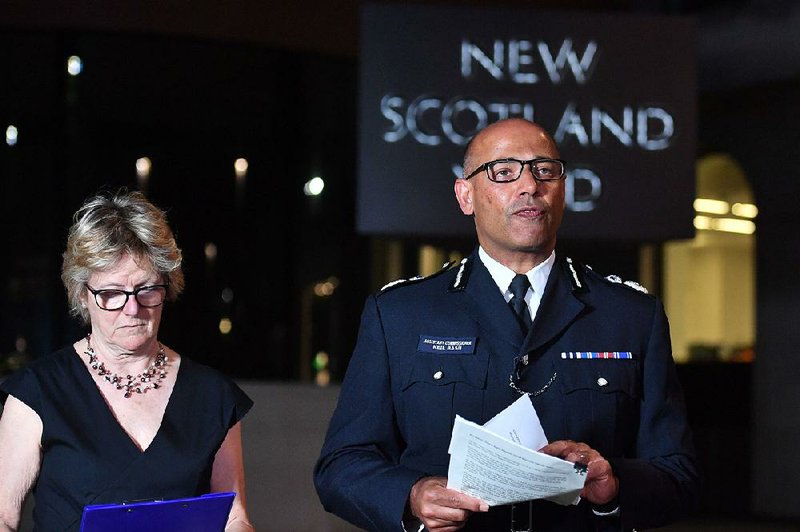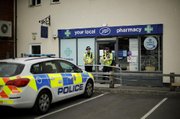LONDON -- A British man and woman have been critically sickened by the same nerve agent, Novichok, that was used to poison a former Russian spy and his daughter four months ago, the authorities announced Wednesday.
The two victims, both in their 40s, fell ill Saturday in Amesbury after having visited gardens in nearby Salisbury, close to the spot where the spy and his daughter were stricken in March, the police said.
The new victims are British citizens from the area, and the police said there was no indication that they had been targeted. Britain has accused the Russian government of being behind the poisoning of the spy, Sergei Skripal, and his daughter, Yulia, a claim Moscow denies.
The police said Wednesday that they did not know whether there was a link between the cases.
"The Counter Terrorism Policing Network is now leading the investigation into this incident," Neil Basu, an assistant commissioner of the Metropolitan Police who oversees counterterrorism operations, announced Wednesday evening. About 100 detectives are working on the case, along with members of the local Wiltshire Police.
The two victims were in critical condition at Salisbury District Hospital, the authorities said.
Investigators initially speculated that it might be a drug overdose, but after further testing by multiple agencies, including Porton Down, the country's main laboratory for chemical and biological weapons, they concluded that the cause was Novichok, a Soviet-developed strain of nerve agent.
Health officials in the area have for months been on the alert for remaining traces of the agent.
"Looking ahead over the coming days, people in the area can expect to see an increased police presence, which will include officers wearing protective equipment as they carry out activity at a number of sites," Basu said.
Basu acknowledged "a great deal of speculation" over a possible connection to the March poisonings of the Skripals.
"However, I must say that we are not in a position to say whether the nerve agent was from the same batch that the Skripals were exposed to," he said.
Prime Minister Theresa May's office said she was being kept updated on the case, "which understandably is being treated with the utmost seriousness."
The police said a response team was called at 10:15 a.m. London time Saturday to a home address in Amesbury, where a 44-year-old woman had fallen ill, and returned at 3:30 p.m. to the same address, told that a 45-year-old man had also collapsed.
British news media reports identified the two as Charlie Rowley and Dawn Sturgess.
On Wednesday, the police cordoned off a number of places where the couple had been before they fell ill, including the Queen Elizabeth Gardens in Salisbury, a short walk from where the Skripals were stricken, and the John Baker House in Salisbury, an assisted-living facility.
Information for this article was contributed by Matt Dunham, Jill Lawless and Danica Kirka of The Associated Press.
A Section on 07/05/2018

